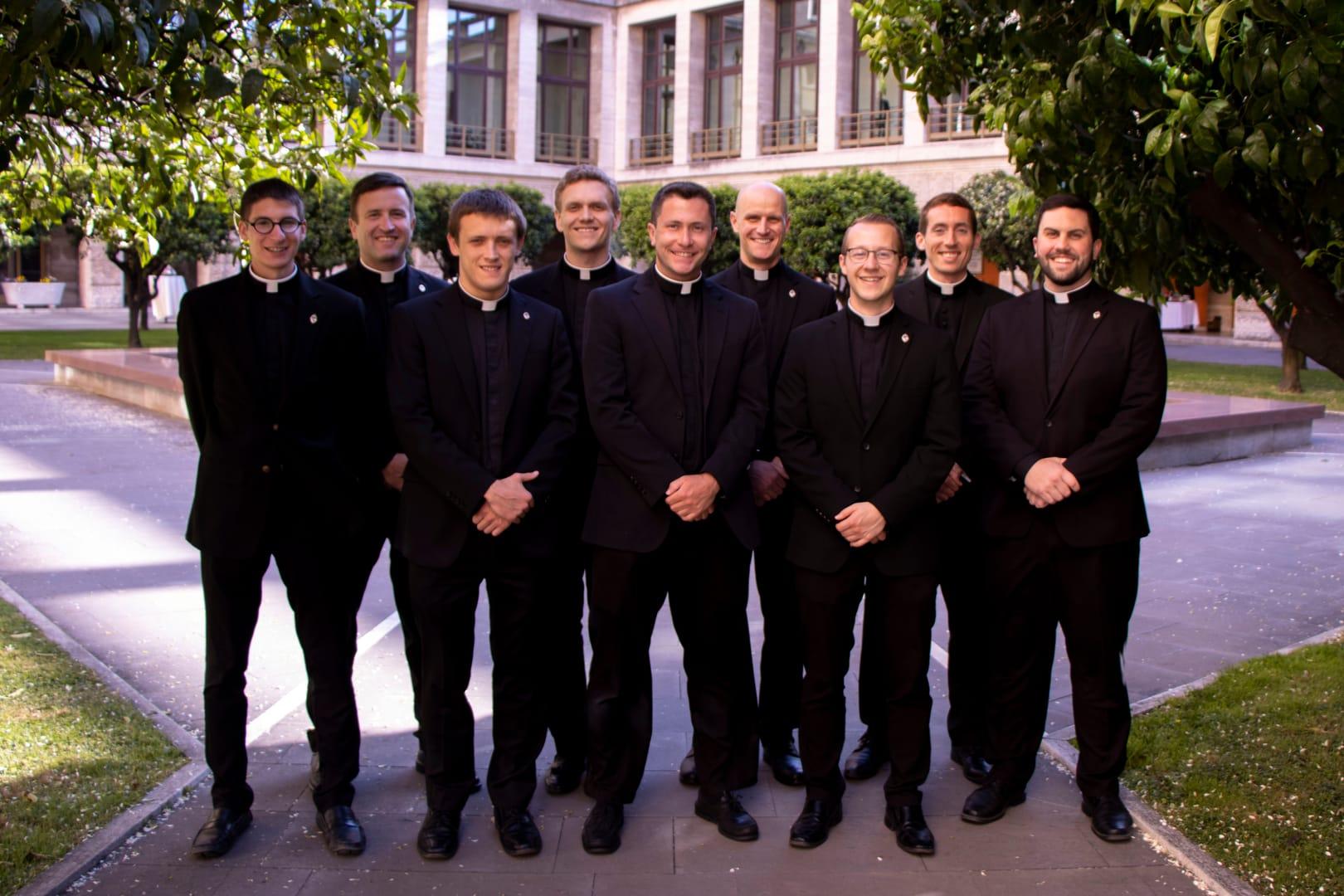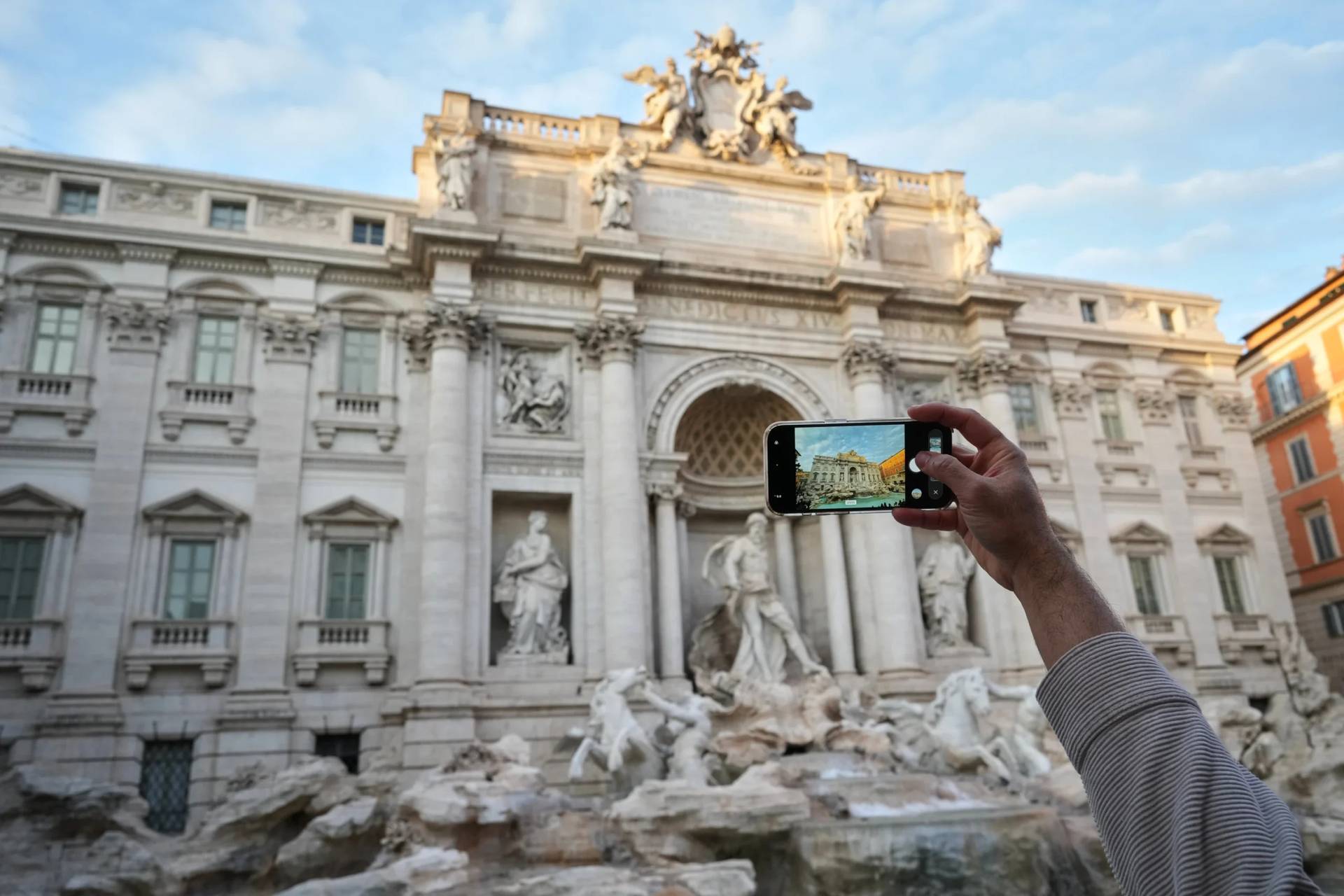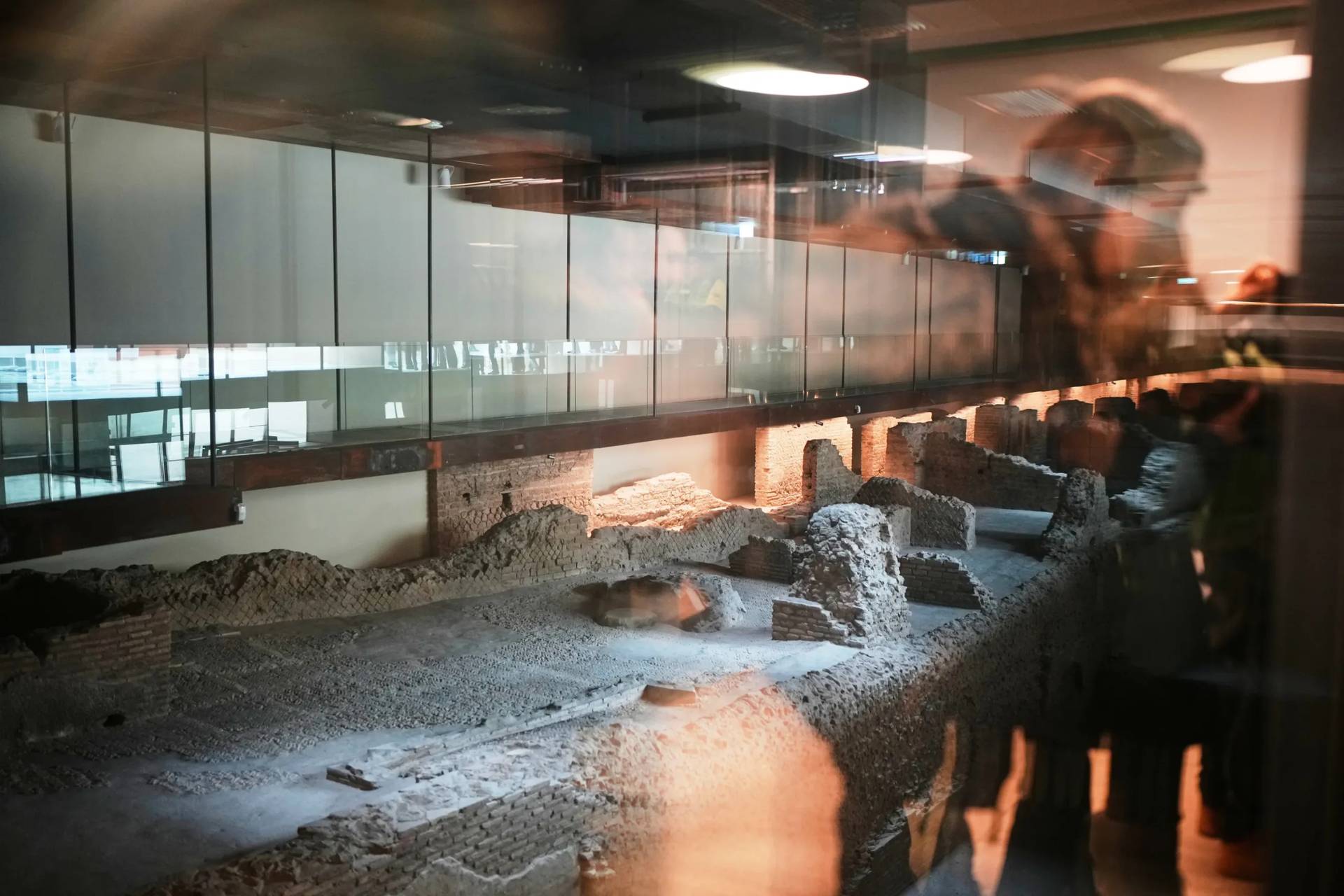ROME – For several years, a number of fast-footed priests, deacons, and seminarians attached to Rome’s Pontifical North America College (NAC) have put their athletic talents to use in support of a charitable cause.
This year, the proceeds from the annual “Roman Run” across the Italian peninsula went directly to support the work of Catholic charity Aid to the Church in Need’s (ACN) projects in Ukraine.
Two of the 12 young men who ran this year’s roughly 168-mile trek were Father Kyle Poje, a priest from the Archdiocese of Seattle ordained last year, and Deacon Alex Wyvill from the Archdiocese of Washington D.C., who is set to be ordained a priest next month.
Speaking to Crux, Poje said the decision to start doing the Roman Run was made by previous seminarians at the NAC and clergy living at the priest residence attached to it, the Casa Santa Maria, in recognition of their God-given ability to run athletically, “while also wanting to help out, to use that gift to help someone else.”
“They said, ‘Hey, let’s use our gift to raise funds, to raise awareness, and to help out somebody in need,’” he said.
Poje, who is in his fifth year of Rome studies for a licentiate degree and lives at the Casa Santa Maria American priest residence, has a knack for competitive running, whereas Wyvill, who still lives on seminary grounds, is in his fourth year and runs mostly for exercise.
Poje said he was in charge of the fundraising aspect of the run this year and was inspired to donate the proceeds to Ukraine after praying a litany to St. Joseph, in which the foster-father of Jesus is invoked as “Comforter of the Afflicted.”
“Of course, my mind immediately lands on the global situation of those suffering from the conflict in Ukraine…We ourselves couldn’t be on the ground, so we wanted to find something that would be a comfort for them,” he said, noting that the decision was then made to give the proceeds to Aid to the Church in Need, which operates projects on the ground that provide basic humanitarian relief, such as food, water, medicine, and shelter to refugees.
According to Wyvill, the decision to give the funds to ACN was made by runners in previous years, and the charity was selected due to its user-friendly online donation page and the low percentage it takes from the money donated.
In past years the funds have gone to support projects such as humanitarian relief in Syria, with awareness being raised mostly through word of mouth, and sharing the link to the team’s ACN donation page.
This year, the run took place April 30, with half of the group starting on the east coast, and half on the west, meeting in the middle at the end of the day.
The runners set a fundraising goal of $10,000 to aid projects supporting Ukrainian refugees, and surpassed it, raising $11,005.25 through 70 benefactors, according to the team’s profile page on ACN’s website.
According to Wyvill and Poje, the annual run is not just an opportunity for ordained athletes to support a good cause, but it is also an opportunity for the clergy and seminarians who participate to grow in fraternity and support one another.
While the Roman Run is not competitive, “There is some banter about who is going to get to the middle first, because we know about where we should be meeting at the end of the day, and because of that there’s this push to get there before the other guys,” Poje said.
There’s also an element of wanting to push past one’s limits to support the rest of the team, he said, saying a lot of runners try to put in extra miles so that others don’t have to, “because as much work as you don’t put in on your team’s part, the other team has to make up for it, so that we can meet at the end of the day.”
Wyvill said that the diversity of the team’s abilities in terms of the mix of competitive and recreational running is “part of what makes the Roman Run so special; you could be a team member that runs 10 miles in a day, or you can be a team member that runs 25 miles in the day. As long as you can run a few middle-distance runs, you’re able to get your foot in the door.”
Recalling the competitive banter that often accompanies the run, Wyvill said guys “love the theatrics of it, it’s very fun.”
“We love to have fun and ham it up a bit, because you’re doing something that’s bigger than yourself, and so to go all in on it helps to communicate the story and the energy that we bring to it, which is something we hope donors can tap into and enjoy,” he said.
Poje said those “shenanigans” especially come in handy toward the end of the day, when runners are low on energy, and they need the extra encouragement.
In addition to this year’s Roman Run, the NAC has also offered support to Ukrainians studying at the Ukraine seminary in Rome, the Ukrainian Catholic College, which is located next door to the NAC, through a barbeque and friendly soccer match.
“As our neighbors, it struck us that one of the greatest concrete acts we could do right now, right in the middle of our lives in Rome, would be to invite them over and offer our companionship and help and solidarity with them,” Wyvill said.
Roughly 50 people from the Ukrainian Catholic College came to the event, including seminarians and staff, he said, calling the event “a special encounter” and an important opportunity for their Ukrainian peers to forget about their troubles back home, and just be themselves.
“We’re also so grateful to get to know them and hear their stories, not just for them to receive our support, but for us to get to know them and share life with them a little bit,” he said.
Similarly, Poje said a touching moment came during a brief prayer that took place before the soccer match began, when the Ukrainian community sang a hymn to Mary.
“I could hear in their voices the heaviness of what they’re going through on a daily basis, but to hear them in prayerful song turn to Our Lady and sing from their hearts, it was so touching to me. It moved many to tears,” he said.
“It was very powerful to hear the prayer of people who experience need in this very moment. It’s often the case that our lives can get comfortable, we can get comfortable, so this situation has given many of us pause to remember that we are all in need,” Wyvill said.
Studying in Rome has opened up this opportunity, Poje said, “because we have seen refugees come from Ukraine, walking the streets of Rome, and we’ve had more contact with them.”
Poje said he himself participated in Rome’s annual marathon earlier this year, and ran alongside a mother and her young son, who fled fighting in Ukraine and are now living in Italy as the war drags on.
“Being here in Rome where we get to encounter them makes it so much more real for us and inspires us,” he said.
Wyvill echoed the sentiment, saying, “If I was back in the States, I think I would be able to intellectually understand what’s going on, but I don’t know that I’d be able to feel the proximity of their pain. That’s what’s so special about being physically present in Rome.”
Follow Elise Ann Allen on Twitter: @eliseannallen
















